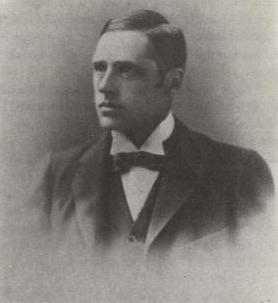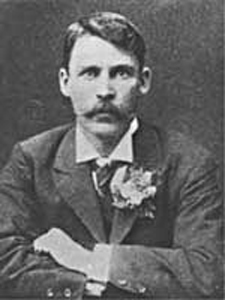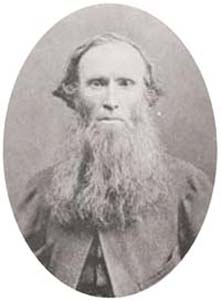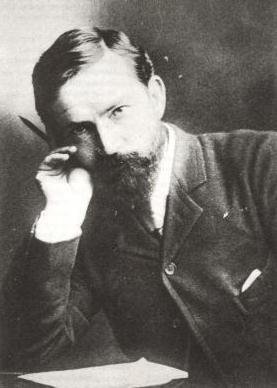"Snake!" how the word ever serves to recall
That pony, all sinew and muscle,
Who gave me one tremendous fall,
And many a terrible tussle!
Strong limbs, and lupple, his head set on
In a way that was just perfection,
With a curve in his neck (like the neck of a swan)
In exactly the right direction.
Such a back and loins, and beautiful crest,
And a barrel round as an apple;
And I know I can scarcely say, of the rest,
With which it was hardest to grapple.
For I've sat on his neck, behind his ears,
And I've sat behind my saddle,
And I found him, with kicks, and bucks, and rears,
A most awkward canoe to paddle.
Dark lustrous eyes, with a menacing frown;
No woman's were ever more splendid,
More bright, or more beautiful liquid brown,
Or more with wickedness blended.
I used to think of the beggar by day,
And I used to dream of him nightly,
And how I longed to be able to say,
"At last I can ride you rightly."
And with every day I used to find
The fascination grew stronger;
Till at last I finally made up my mind
That I would delay no longer.
I remember the morning, cold and gray,
And how I tried to dissemble
That the nasty cold raw feel of the day
Was the reason that made me tremble.
"Charlie" and "Bungaree," darkies two,
Sat up on the stockyard railing,
And said an occasional "Budgery you!"
To prevent my heart from failing.
(Poor fellows! Now to "kingdom come"
I hear they have both departed;
One died of a cold, the other from ram;
But the pair were really good-hearted.)
I remember well the whistling snort
That shook my self-reliance,
As you boldly faced around, old sport,
And bade me a cool defiance.
As I looked in your face I shall never forget
The evil look that you gave me,
And the "strike" you struck at my head, and yet
After all you did but shave me.
You stood like an image as I drew tight
Much girth almost to the bursting;
You were thinking, no doubt, of the coming fight,
For which I believe you were thirsting.
I carefully tightened the near side rein,
Till your nose was touching my shoulder;
And I thought, as I grasped a lock of your mane,
That, you villain, you only looked bolder.
And as I got up with the utmost care,
And you never attempted to "hook it,"
My goodness! how those darkies did stare
To see how quiet you took it.
But I knew very well 'twas an ominous sign,
And I felt my face grow whiter;
And I said to you, "Yes, this is all very fine,"
As I set myself down a bit tighter.
Four miles we had gone; I was watching you;
Could it be that your manners were mended?
The blackboys laughed, and I laughed too;
But the laugh was mighty soon ended.
What happened exactly I never could say,
But all that I'd seen before me
Had gone, in a most mysterious way
As through the bushes you tore me!
A sudden stop, and a furious bound,
Our course exactly reversing,
Brought me uncommonly close to the ground;
I'm afraid that I started cursing.
Now, I felt on my face your waving mane,
And then, such a shock behind me;
I can ride that ride here over again,
Where changes of circumstance find me.
Backwards, forwards, dashing around,
I shall never forget the feeling,
Nor the rattle of buckles and straps, and the sound
Of the devil beneath me squealing.
By the mane, by the saddle, the bridle, all,
I was clinging in desperation;
I'd have collared the tail to have saved a fall,
But for its wrong situation.
"Budgery ride, by Golly! hey!"
Together the darkies shouted;
I knew, in spite of all they might say,
The end they never had doubted.
To be riding "all over," from head to tail,
A horse that is perfectly frantic,
Is a game that I must say soon becomes stale,
And it certainly isn't romantic.
But all things end --- the worst and the best.
So far I'd stuck to the leather;
"Snake" very suddenly ended the rest,
For we both came down together.
Side by side for a moment we lay,
There wasn't much time for talking;
With a bound and a kick he darted away,
And left me behind him --- walking.
Well! well! I look back and think of his hate --
It's well to be honestly hated;
He was always to me a dangerous mate
As ever the Lord created.
But I'll say of him, though he became my slave,
And for years I used to ride him,
That at least, though wicked, he still was brave;
So may no ill betide him.
And if of this life he's ended his lease,
So that there the whole thing ceases,
I would possibly wish he might rest in peace ---
Only probably now he's in pieces.
One thing in the lines that compose this lay,
And perhaps their small merit enhances ---
Is, only, that I can truthfully say
That they simply are facts, and not fancies.
First published in
The Queenslander, 18 February 1882
Author: nothing is known about the author of this poem.
Author reference site: AustlitSee
also.




